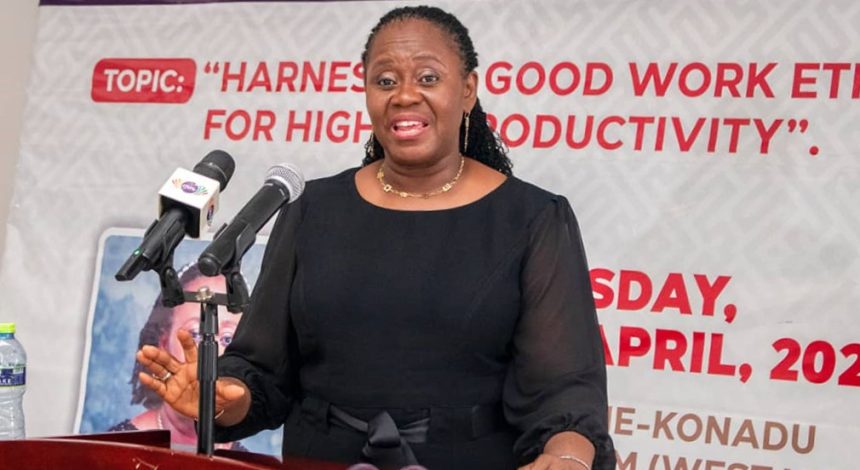Three suggested ways to deal with delayed land cases-Justice Gertrude Torkornoo
Ghana’s courts are faced with a myriad of winding land cases whose resolutions usually take years and thus becoming a real challenge.

The Chief Justice nominee, Justice Gertrude Esaaba Torkonoo has outlined three practical ways to deal with the slow pace of land case resolutions by our courts.
Ghana’s courts are faced with a myriad of winding land cases whose resolutions usually take years and thus becoming a real challenge.
However appearing before Parliament’s Appointment Committee, Justice Torkornoo indicated the use of technology in such matters.
Additionally, she mentioned the need to begin a new engagement with the Case Management rules.
Lastly, she said that lawyers need to be trained because there are various instances where parties in a suit get injunctions and intentionally go to sleep.
Speaking also on the E-Justice system, Justice Torkornoo indicated that the constant challenge is how to move the system to the last man in the village adding that the rules of engagement ought to be designed to cover both the manual and digital.
Justice Torkonoo succeeds the immediate past Chief Justice, Kwasi Anin Yeboah, as the 15th in line and the Third female Chief Justice in Ghana.
After 18 years of law practice, Justice Torkornoo was invited to join the judiciary in 2004 as a Justice of the High Court of Ghana. In October 2012, she was promoted to the Court of Appeal and rose to become a Justice of the Supreme Court, the apex court, in 2019.
She is well known for being one of the Supreme Court judges who presided over the 2020 presidential petition case between John Dramani Mahama and the Electoral Commission and Nana Addo Dankwa Akufo-Addo.
She has also made significant contributions to legal knowledge through some of her non-judicial writings including ‘Creating Capital from Culture’; ‘An Uneasy Marriage – the Relationship between interest rate regimes and debt recovery rates in Ghana (2012), ‘Examining the Borrowers and Lenders Act’ (2015), and ‘The Law on Interests’ (2021).
Justice Torkornoo has held several leadership positions in the judiciary. They include the chair of the Editorial Committee of the Association of Magistrates and Judges, chief editor for developing the Judicial Ethics Training Manual, vice-chair of the E-Justice Steering/Oversight Committee, and vice-chair of the Internship and Clerkship Programme for the Judiciary. She is currently the chair of the E-Justice Steering/Oversight Committee. She is also a faculty member of the Judicial Training Institute and a member of the governing Board of the Judicial Training Institute. She is a regular speaker on different platforms addressing issues on law, leadership, and judicial ethics.


